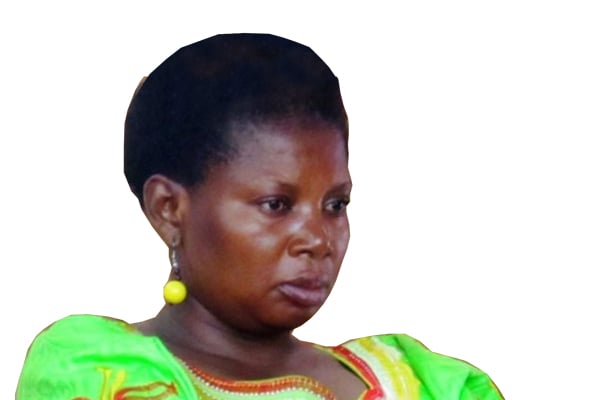Prime
Locals contribute money to construct own hospital

Hopeful. Residents of Beteremu Village in Nabigasa Sub-county, Kyotera District, inspect the ongoing construction works of a bigger and modern community hospital on July 8. PHOTO BY MICHAEL J SSALI
What you need to know:
- Development. From a mere nursing home with a capacity of 20 inpatients, the area is now constructing a fully fledged modern hospital that can accommodate at least 180 inpatients.
KYOTERA. One of the biggest huddles in rural communities in Uganda is access to quality health care services. Good hospitals and other health care facilities are mostly far away in large towns where there is limited transport due to impassable roads. One of such rural areas is Beteremu Village, nearly 70kms from Masaka Regional Referral Hospital.
It was almost impossible for most of the residents in this and neighbouring villages in Nabigasa Sub-county, Kyotera District, to believe that construction of a big and modern hospital was underway.
On July 8, 2017, all residents were invited to inspect the construction work of the 180 capacity hospital which was donated to them by Master Cares, an American charitable Christian organisation.
At that time, Mr Charles Loper, the representative of Master Care, assured residents that they want to make it the best hospital in Uganda.
The hospital, which is expected to begin operations in July 2018, will replace the smaller Bethlehem Community Nursing Home that has been in place since 2009.
Dr Emmanuel Ssentongo, the proprietor of the nursing home, says such development will positively impact on the villages in the health sector.
“Bringing quality health services nearer to the communities reduces what we call 3Ds (three delays) which are the main causes of death in rural areas,” he says.
The 3Ds are; delay at home before a decision is made whether or not to take the patient to hospital, delay on the road to deliver the patient to the hospital due to lack of reliable public transport and bad roads, and delay by the patient taking too long to see a health worker after getting to the hospital.
The start
He adds that because of the above delays, he agreed with his wife Salome, a nurse, to establish Bethlehem Community Nursing Home after he had spent years working with the World Health Organisation (WHO) and saved some money.
“Having been born and raised in this village, I saw women die due to absence of antenatal care. I also witnessed children dying of malaria and other illnesses,” Dr Ssentongo says.
He adds: “It therefore became my lifelong wish to bring better health services to the area. I wanted to alleviate the suffering we went through to get treatment whenever we fell ill.”
From family planning to laboratory services, HIV testing and counselling, antenatal care, blood transfusion, and also comprehensive care for children with severe malaria, Dr Ssentongo’s dream had been realised but not to capacity. The home has an inpatient capacity of only 20 beds.
“With time, we realised that most of the children that we attended to were also malnourished which presented another challenge,”Dr Ssentongo reveals.
He says these and more challenges haunted the villages hence the need for a bigger hospital.
“When children are malnourished, they frequently fall sick and their growth is retarded. Most fortunately, we meet and befriended an American national, Mr Charles Loper and his charitable organisation Master Cares. He has helped us to establish a nutrition unit at the nursing home, which is complete with a kitchen and nurses who cook the food that is freely served to malnourished children,” he says.
He says even with a capacity of 10 children at ago, more than 300 children have benefitted from the nutrition programme. He says they have also trained children’s care givers in fish farming skills to ensure constant source of animal protein in their homes. With the new health facility estimated to cost Shs1.6 billion, part of which has been raised by residents, Dr Ssentongo explains that this will transform the area to greater heights.
“We are rural based but we intend to provide nearly all the health care services that are offered in Kampala and elsewhere,” he states, adding that to sustain the services, it will be necessary for the patients to contribute a small fee to their treatment bills.
He, however, clarifies and that for the antenatal as well as the peadiatric services, the fees will be subsidised by the government.
Mr Loper also says the new hospital targets the rural community and that his organisation has a dream to turn it into the best hospital in Uganda, providing surgical services, medical care, dental care, maternal care, eye care, child nutrition and several other health care services.
“We also expect to have a nurses’ training school here with a view to improve health care in the entire neighbourhood,” Mr Loper notes.
Kyotera District outgoing chairperson Charles Lubega Ziriddamu, has expressed great appreciation for the construction of the hospital which he says will serve not only the people of Nabigasa Sub-county but the entire district and even beyond, thanking Dr Ssentongo and Master Cares for coming up with the provision of health care in such a remote area where the service is most needed.


